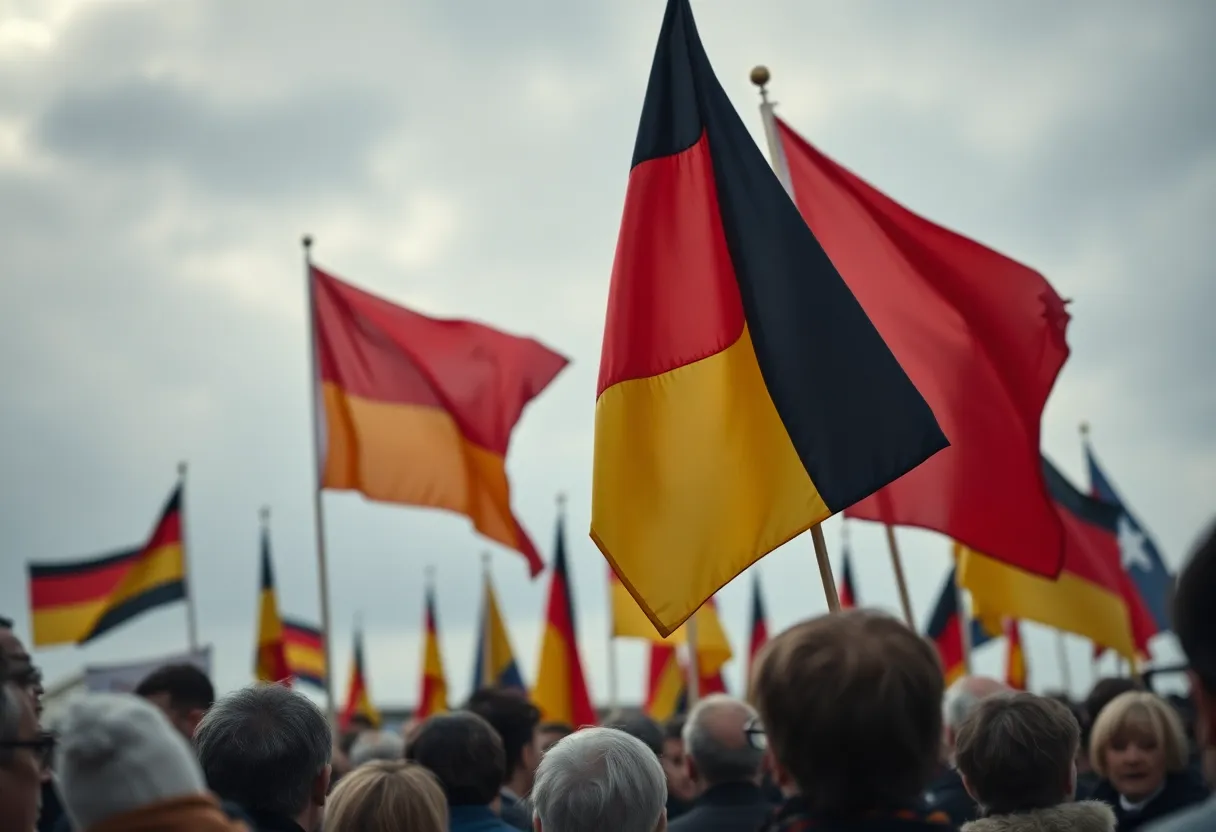

Tense discussions among German political leaders amidst a government shake-up.
Want to target the right audience? Sponsor our site and choose your specific industry to connect with a relevant audience.
Prominent brand mentions across targeted, industry-focused articles
High-visibility placements that speak directly to an engaged local audience
Guaranteed coverage that maximizes exposure and reinforces your brand presence
Interested in seeing what sponsored content looks like on our platform?
May’s Roofing & Contracting
Forwal Construction
NSC Clips
Real Internet Sales
Suited
Florida4Golf
Click the button below to sponsor our articles:
Sponsor Our ArticlesIn a significant political maneuver, German Chancellor Olaf Scholz has removed Finance Minister Christian Lindner, prompting instability in the coalition government. The decision comes amid internal conflicts within the ‘traffic light’ coalition, consisting of the SPD, FDP, and Greens. Following the dismissal, Lindner’s FDP plans to withdraw, while the Greens remain committed. A confidence vote is scheduled for January 15, potentially leading to snap elections. The tensions were fueled by disagreements over an 18-page economic proposal and Lindner’s resistance to pause the constitutional ‘debt brake.’
In a significant political move, German Chancellor Olaf Scholz has decided to part ways with Finance Minister Christian Lindner. This decision was made on Wednesday as Scholz expressed that the dismissal was crucial to prevent potential harm to Germany. The “traffic light” coalition government’s internal negotiations have reached a boiling point, leading to this unexpected turn of events.
The coalition, made up of Scholz’s Social Democratic Party (SPD), Lindner’s Free Democratic Party (FDP), and the Green Party led by Robert Habeck, is now in disarray. Lindner’s FDP has announced plans to withdraw from the partnership following his removal. Meanwhile, Habeck confirmed that the Green Party would stick it out within the coalition.
With things heating up, Scholz is gearing up for a confidence vote scheduled for January 15. This vote could potentially pave the way for snap elections by the end of March next year. Scholz aims to push through key legislation before this crucial date, expressing his willingness to collaborate with opposition leader Friedrich Merz of the Christian Democratic Union (CDU) to address economic and defense laws.
Scholz criticized Lindner for his reluctance to support government proposals and for seeming more focused on promoting his party’s interests than on collaborative governance. Tensions flared further when Lindner suggested plunging into early elections to settle ongoing budget disputes, a suggestion that Scholz firmly rejected.
An essential sticking point has been Lindner’s resistance to pausing the “debt brake,” a constitutional measure designed to limit excessive government borrowing. With the coalition under significant stress, Lindner’s actions were interpreted by some as more of a campaign manifesto rather than genuine efforts to develop effective policy.
All of this political drama unfolds amidst growing concerns regarding economic pressures, such as the potential impact of a Trump administration on the German economy. The far-right group, the Alternative for Germany (AfD), welcomed the downfall of the coalition, suggesting it was long overdue and asserting that the partnership had drifted Germany towards economic disaster.
Reflecting on the current situation, Scholz stated he intends to keep his position until the confidence vote in January. This uncertainty mirrors political experiences from as far back as 2005, when Germany saw snap elections initiated by Chancellor Gerhard Schröder, which ultimately led to a loss to Angela Merkel.
As January approaches, all eyes will be on the unfolding situation, with many curious to see if Scholz can rally enough support for his plans or if Germany will face a shift in political direction that could change the landscape of its governance.
Step-by-Step Guide to a DIY Kitchen Remodel: Save Money and Stay on Trend Embarking on…
News Summary The National Patients’ Convention organized by Mission Arthritis India (MAI) focused on the…
News Summary Oluwatosin Adesoye reflects on her impactful two-year journey as a columnist focused on…
News Summary Ubie, the global healthcare AI platform, has doubled its user base to 4…
News Summary Healthcare startup Solace has achieved an over $300 million valuation after a successful…
News Summary The Japanese government has postponed planned increases to out-of-pocket medical expenses originally set…